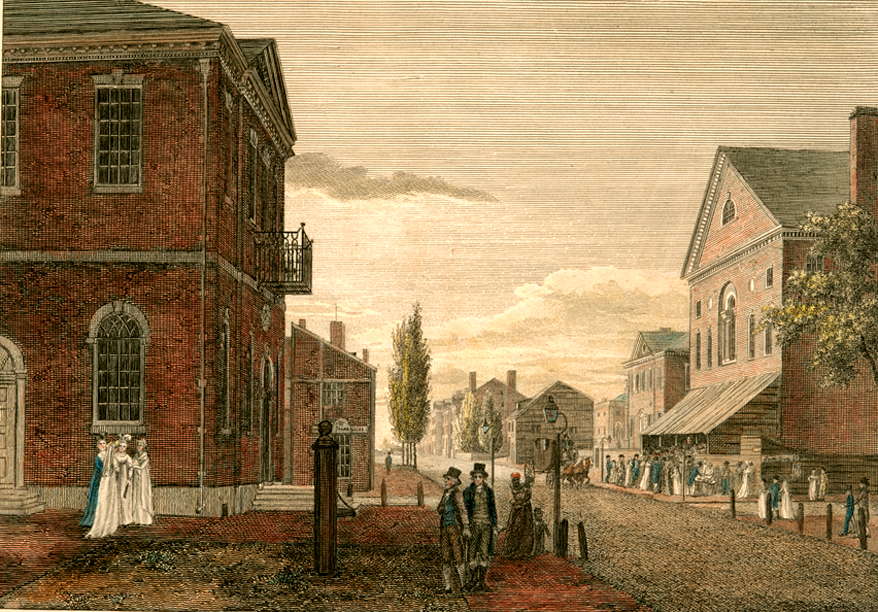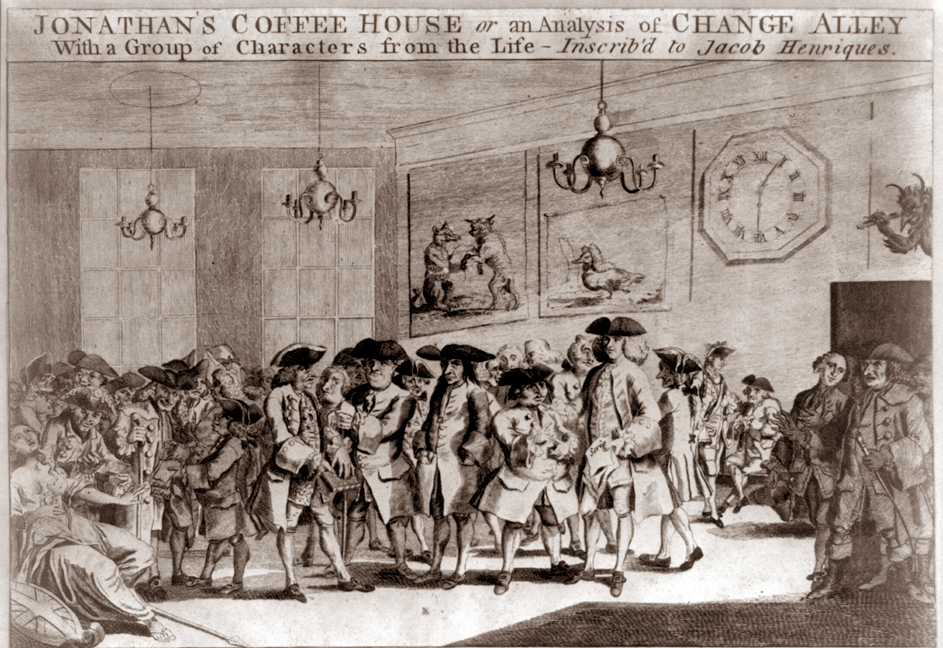Dear Readers:
This month we address a comment from fellow contributor Ray Raphael. In January, after a discussion of the 1781 mutiny by the Pennsylvania Line, Ray astutely noted that a similar revolt by New Jersey troops presents an interesting contrast in how the Continental Army dealt with mutinies. So what happened with the New Jersey Line, and what does the event tell us about the Continental Army?
Let’s start with the basics. Over the winter of 1780-81 the Continental Army was dispersed at winter camps in New Jersey, Pennsylvania, and New York. The Army was also being reorganized and several regiments consolidated on New Year’s Day. After that, the New Jersey Line consisted of about 500 soldiers organized in two regiments at Pompton, New Jersey, with other detachments quartered near Suffern and Chatham. It was a mild winter and the soldiers lived relatively comfortably in log huts. That’s where the comfort ended.
Like much of the Continental Army, the New Jersey Line was enduring a life with meager rations, wretched clothing and little pay. As with the Pennsylvania Line, many Jersey soldiers believed that their enlistments were complete at the end of 1780 but their confusing records prevented the soldiers from being discharged. And unfortunately the commander at Pompton, Colonel Israel Shreve, was not a leader who inspired confidence in his men during tough times. Not only did he tip the scales at 320 pounds (his son called him “very fleshy”), his character did not impress General Washington.[1] Shreve apparently was also not an enforcer of discipline, as order at Pompton became lax and discontentment rose, especially among the soldiers who lived in the huts located away from the main camp.
The January 1 mutiny by 1,500 Pennsylvania troops occurred about 20 miles away from Pompton and it only intensified the Jersey soldiers’ discontent. General Anthony Wayne deployed some of the Pompton troops to help contain the revolt but the Jersey soldiers sympathized with the mutineers, who they considered “brother soldiers.” In the first week of January some of the Jersey troops distributed handbills that boldly threatened to mimic the Pennsylvanians with an uprising of their own.[2]
The New Jersey legislature at Trenton was aware of the brewing problem and hurriedly passed some acts to improve the soldiers’ quality of life, including one that authorized the immediate payment of 20 dollars to each officer and 5 dollars to every enlisted man. Two commissioners from the legislature began doling out the payments at Pompton on January 15 and many soldiers spent their new cash on the liquor sold by some of the female camp followers.[3] Let’s not judge here – those guys were fighting a war under the harshest of conditions so if they had a little booze fest, it was well-earned.
However, disgruntlement mixed with alcohol never leads to anything good. On the afternoon of Saturday, January 20, a camp follower informed Col. Shreve that the men intended to mutiny. To his credit, Shreve quickly tried to douse their plans by dispersing his soldiers in small groups away from the camp but it was too late; few men obeyed his orders. Shreve reported that many of the soldiers were “much disguised with liquor” and that he “could not prevail upon them to desist.”[4] Unlike the Pennsylvania mutiny nobody fired muskets into the air, threatened others, or scuffled with officers. About 200 soldiers simply walked out of the camp under the command of their sergeants and headed south. Shreve thought they intended to see the State Legislature at Trenton. He fired off a dispatch about the situation to General Washington, and then he and the state commissioners followed the column.
About 20 miles south of Pompton, Col. Elias Dayton, senior officer of the New Jersey Line, commanded a camp that was smack dab on the way to Trenton at the town of Chatham. Dayton received a report about the mutiny, and that the mutineers were headed his way, on Sunday morning. He quickly polled his soldiers about their sympathies and received assurances that they had “no inclination to join with the seditious part of the brigade.”[5] Just to be on the safe side Dayton sent most of his soldiers to their homes on furlough and others to Springfield, which was 4 miles east and out of the mutineers’ path. Dayton remained, and his reduction of the camp was well-timed; later on that same day the Jersey mutineers marched into Chatham and found few other soldiers to join their ranks.
The mutineers set up camp at Chatham and began negotiations with Col. Dayton, Shreve, and the commissioners on January 23. A committee of three sergeants, led by Sergeant Major George Grant, represented the soldiers. Col. Dayton told the sergeants that the New Jersey legislature was working to improve their conditions and that everything could be settled if the soldiers ended the mutiny. That somewhat satisfied the men, but they pushed for discharges for men who swore that their enlistments were complete, which were the same terms that the Pennsylvanians received. Dayton and the commissioners flatly refused, and only offered full pardons for the men that “immediately without hesitation shall return to their duty and conduct themselves in a soldierly manner.” If they refused the offer, Dayton threatened, they could “expect the reward due to such obstinate villainy.”[6] The sergeants read the proposal to their men, and the soldiers signaled their acceptance with the usual military shout of triumph, three loud “huzzahs.” The next day they marched back to Pompton under Col. Shreve and the New Jersey Line mutiny appeared to be over. Huzzah.
The mutineers were not getting off so easily. On the evening of January 21 Shreve’s report reached General Washington at his headquarters at New Windsor, New York, and the general was far from pleased. Washington understood the soldiers’ grievances but the New Jersey revolt occurred when the Pennsylvania uprising was barely settled; he would sooner have eaten his horse saddle than to let such lawlessness become a trend. As he wrote to Congress, “unless this dangerous spirit can be suppressed by force there is an end to all subordination in the Army, and indeed to the Army itself.”[7] Washington immediately ordered Shreve to “compel the mutineers to unconditional submission” and told him that more troops were on the way contain the revolt. [8]
The next day Washington assembled a force, ordering detachments of Massachusetts, Connecticut, and New Hampshire troops to march from their camps in New York to Ringwood, New Jersey, about 8 miles north of Pompton, where they would be under the command of Major General Robert Howe. Not only did he order Howe to gain the unconditional surrender of the mutineers, Washington directed him to “execute a few of the most active and most incendiary leaders.”[9] Boom.
Heavy snows impeded the march of the men south, but Howe reported that his soldiers were in “high spirits” and they began arriving at Ringwood on January 25.[10] Howe soon learned that the mutineers had returned to their huts at Pompton but that they again wanted to negotiate with their regimental officers about discharging men who had reached the ends of their enlistments. Howe was a believer in absolute discipline who held any rebellious soldier in contempt and he called their demands a “tune by which I by no means am inclined to dance to.” He sent officers to Dayton and Shreve with orders to suspend all negotiations “other than to amuse,” in other words, to string the men along until Howe’s entire force gathered to give the mutineers what for.[11]
On January 26 an officer from Pompton told Howe that the troops were acting up again; taking orders from only a few officers, insulting others, and threatening one with a bayonet. By then Howe’s full force arrived and he “instantly determined” to coerce the Jersey troops back into order.[12] That night Washington arrived at Ringwood by sleigh, along with his Life Guard, to be in a position to influence suppression of the mutiny. Howe consulted with the commander in chief, and then at about midnight moved his force out from Ringwood to gain control of the mutineers at Pompton.
Howe’s detachment moved quietly through the snow and arrived within view of the rows of huts at Pompton before daylight. Dr. James Thacher, a veteran physician in Howe’s force with the 9th Massachusetts Regiment, recalled that the general bellowed a short address to his troops about the need for absolute discipline in an army, the “heinousness of the crime of mutiny,” and that they would force the mutineers into “unconditional submission” with “no temporizing, no listening to terms of compromise.” Col. Shreve and Lt. Col. Francis Barber informed Howe about the camp layout and the general deployed his forces to surround the huts. Dr. Thacher recalled, “some of our officers suffered much anxiety, lest the soldiers would not prove faithful on this trying occasion,” but the men dutifully loaded their weapons.[13] The New Hampshire soldiers took position on the road to Charlottenburg, the nearest town to Pompton, to cut off any escape. Howe’s artillery section pointed the muzzles of their three field guns into the camp from two sides.
“In this position the mutineers found us when daylight appeared,” wrote Howe. Lt. Col. Barber went forward to the huts and ordered the mutineers to come outside, form their ranks unarmed, and march to a designated parade field. Some of the mutineers complied but others cried “What! No conditions – Then if we are to die, it is as well to die where we are as anywhere else.” The mutineers did know who they were messing with, because Howe was happy to oblige them. He ordered Lt. Col. Ebenezer Sprout to advance his Massachusetts troops and give the mutineers five minutes to comply. “This had its effect,” Howe recorded, “and they, to a man, marched without arms to the ground appointed for them.”[14]
At the parade field, Howe ordered the New Jersey officers to select three of the mutiny’s worst offenders. Then right there on the snowy field, Lt. Col. Sprout held a court-martial that unanimously sentenced the three men to death. The court assembled a firing squad from among the ranks of mutineers themselves. Dr. Thacher wrote, “This was a most painful task; being themselves guilty, they were greatly distressed with the duty imposed on them, and when ordered to load, some of them shed tears.”[15] The first guilty man, Sergeant David Gilmore, was placed on his knees a few yards before the firing squad; six shots to his head and heart sent him to his maker. The next offender, Sergeant John Tuttle, met the same fate. The third guilty soldier was Sergeant Major Grant, the apparent leader of the revolt. But the New Jersey regimental officers knew him as a normally dedicated, long-serving soldier who was reportedly coerced into his role as a mutiny leader, so the court pardoned Grant, “to his unspeakable joy,” recorded Dr. Thacher.[16] The executions and a final harangue to the mutineers from Howe finally deflated the revolt.
But the matter was not completely settled. The American officers remained wary that the British could march from Staten Island to exploit any opportunities the mutiny presented. And just as they had during the Pennsylvania mutiny, the British launched a few clandestine messengers to the mutineers with offers of pay and rewards. But it appears that the operatives only skulked around outside the American camps, picked up some second hand information, and never delivered the messages directly to the Jersey troops. One, Uzal Woodruff, even turned one of the proposals over to Continental officers and eventually became a double agent for the Americans.[17] On January 29, Howe told Washington that the threat from British forces was diminishing, and that he was returning his soldiers to camps in New York.[18] Washington also returned to his headquarters at New Windsor and the crisis was finally over.
There are many lessons from the mutinies of the Pennsylvania and New Jersey Lines. One is that both revolts occurred because the privations of bad pay, awful clothing and harsh discipline were pushing the troops to their limits of endurance. Continental soldiers were dedicated but they could only take so much. Washington knew it, and that’s why he urged Congress on January 16 to address “the real grievances” of the soldiers or they could expect “a repetition of similar or even more dangerous disturbances than those which have happened in the Pennsylvania Line.”[19] His prediction came true when New Jersey revolt erupted four days later.
However, the mutinies also showed that the Continental Army was truly a dedicated and disciplined force. Historian Charles Royster observed that most soldiers desired to serve honorably no matter how bad the conditions, and “the men enjoyed solidarity as soldiers, not mutineers.”[20] As justifiable as the grievances were, mutiny crossed a line of discipline that even “brother soldiers” would not tolerate. So when revolts occurred other regiments didn’t mind marching to contain them. Although almost all Continental soldiers suffered under bad conditions that winter and the fact that neither mutiny ignited widespread unrest points to the professionalism of the majority of the Continental Army.
Perhaps the strongest lesson from the New Jersey mutiny is that by crushing it with force and executing its ringleaders, Washington signaled to the soldiers that the Army would maintain its discipline no matter what the circumstances. In general orders published January 30, Washington lauded Howe and his detachments for their handling of the mutiny. He also stressed to the soldiers that he understood their sufferings but other armies had endured worse privations and that the nation relied on the men to continue serving faithfully. “The General is happy in the lenity shown in the execution of only two of the most guilty,” he wrote, but added that he would no longer entertain the clemency shown to the other mutineers.[21] His message was clear; the nation is counting on you, so if you mutiny, the last thing you ever see will be a firing squad. It seemed to hit its mark because the New Jersey mutiny was the last large revolt by enlisted soldiers for the rest of the war.
The next time the Continental Army faced a significant internal threat, it would be at Newburgh in 1783, and this time the culprits were the officers. But that’s another story.
There is much more to the complicated and interesting stories of the 1781 mutinies. To read more check out or Rebellion in the Ranks: Mutinies of the American Revolution by John A. Nagy, or Mutiny in January, by Carl Van Doren.
[Featured image at top: A Map of the Country ’round Philadelphia including Part of New Jersey, New York, Staten Island and Long Island. Source: Scots Magazine (Edinburgh), September 1776]
[1] John Shreve, “Personal Narrative of the Services of Lieut. John Shreve of the New Jersey Line of the Continental Army,” in The Magazine of American History with Notes and Queries, Volume III (1879), 576; and Washington to John Sullivan, December 17, 1780, The Writings of George Washington, Volume 20, accessed February 22 2014 via http://etext.virginia.edu
[2] John A. Nagy, Rebellion in the Ranks: Mutinies of the American Revolution (Yardley, PA, Westholme Publishing, 2007) 170.
[4] Shreve to Washington, January 20, 1781, The George Washington Papers at the Library of Congress, accessed February 22 via http://memory.loc.gov.
[5] Dayton to Washington, January 24, 1781, George Washington Papers, accessed February 22 via http://memory.loc.gov.
[6] New Jersey Brigade Commanding Officer to New Jersey Line Mutineers, January 23, 1781, George Washington Papers, accessed February 22 via http://memory.loc.gov.
[7] Washington to the President of Congress, January 23, 1781, The Writings of George Washington, Vol. 21, accessed February 22 2014 via http://etext.lib.virginia.edu.
[8] Washington to Shreve, January 21, 1781, Writings of George Washington, Vol. 21, accessed February 22 2014 via http://etext.lib.virginia.edu.
[9] Washington to Howe, January 22, 1781, Writings of George Washington, Vol. 21, accessed February 22 2014 via http://etext.lib.virginia.edu.
[10] Howe to Washington, January 25, 1781, George Washington Papers, accessed February 24, 2014 via http://memory.loc.gov.
[11] Howe to Washington, January 25 and 26,1781, George Washington Papers, accessed February 24, 2014 via http://memory.loc.gov.
[12] Howe to Washington, January 27, 1781, George Washington Papers, accessed February 24, 2014 via http://memory.loc.gov.
[13] Dr. James Thacher, A Military Journal During the American Revolutionary War, from 1775 to 1783 (Boston, Richardson and Lord, 1832), 302.
[14] Howe to Washington, January 27, 1781, George Washington Papers, accessed February 24, 2014 via http://memory.loc.gov.
[17] Carl Van Doren, Mutiny in January: The Story of a Crisis in the Continental Army now for the first time fully told from many hitherto unknown or neglected sources both American and British, (New York: Viking Press, 1943), 224; Nagy, Rebellion in the Ranks, 177-178, 181.
[18] Howe to Washington, January 29, 1781, George Washington Papers, accessed March 1, 2014 via http://memory.loc.gov.
[19] Washington to John Sullivan, January 16, 1781, Writings of George Washington, Vol. 21, accessed March 2 2014 via http://etext.lib.virginia.edu.








2 Comments
Excellent article, but the map got cutoff. It does not extend northward enough to show Pompton (Bloomingdale), NJ (i.e., Northeast of Morristown, in Passaic County) where the mutiny occurred.